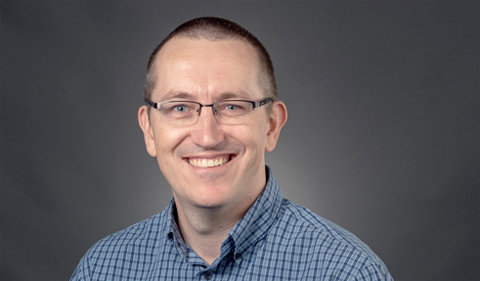Understanding how the human body processes and metabolizes nutrients is critical to developing new paradigms and treatments for many diseases including diabetes, cancer, heart disease, and digestive disorders. The current state-of-the-art mass spectrometric technologies for analyzing metabolism generate large data sets which unfortunately can contain misleading information.
Many of the misleading detected signals are due to non-specific attachment of solvent and salt adducts to the true metabolites (known as degeneracy). This spreads out the metabolites signal and makes it harder to identify.
With support from the NIH (1R01GM134081-01), Dr. Benjamin Bythell, Associate Professor of Chemistry & Biochemistry at Ohio University, as part of multi-investigator team, will develop innovative technologies to clarify these data sets and streamline metabolomics-based investigations.
How Will They Achieve this Goal?
“We will develop a series of three distinct, highly basic, chemical tagging platforms. These tags react with virtually all metabolites and eliminate degeneracy, increase signal, allow for multi-charging, and analysis of ultra-small volumes and concentrations of sample. These tags can be generated in isotopically labelled forms enabling differentiation of like samples formed with alternate, parallel treatments and thus direct comparison,” Bythell says.
Discovering and Characterizing New Metabolites
“We will simultaneously develop an understanding of the gas-phase fragmentation chemistry of the newly formed tagged metabolite ions. Using this knowledge, we will identify new metabolites and make general rules for subsequent automated application. i.e., to help identify and quantitate these and related metabolites in subsequent studies.”
Opportunities Available for Interested Students
“We have multiple research opportunities for interested graduate or undergraduate students on this project,” Bythell adds.
- Contact Bythell at bythell@ohio.edu.




















Comments